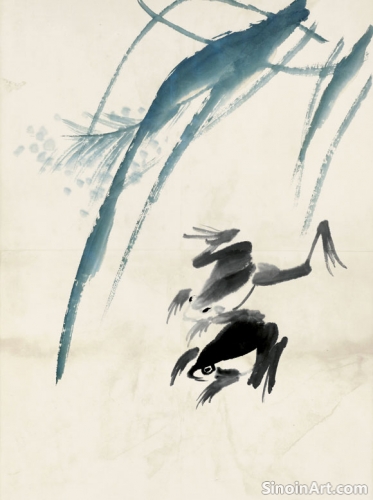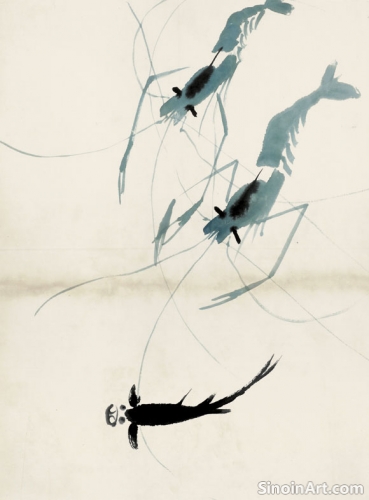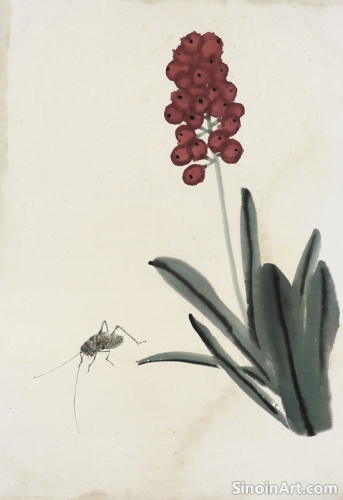The Role of Color in Xieyi: Subtlety and Emphasis
|
While often associated with monochromatic ink washes, color plays a significant role in many Xieyi paintings. When color is used, it is often applied subtly, with careful consideration for how it can enhance the overall composition. Color serves not as a literal depiction of reality but as an expressive tool that accentuates the subject’s spirit.  Traditional Xieyi artists often favor natural pigments derived from minerals and plants. These colors are applied with a light touch, allowing the ink wash to remain the dominant element. The balance between ink and color reflects a core principle of Xieyi aesthetic.  Colors in Xieyi are often used to suggest rather than to directly represent. A splash of red might represent a flower, or a touch of blue might evoke the feeling of a distant mountain. The use of color is often symbolic and evocative, rather than purely descriptive.  The application of color in Xieyi painting is often done with spontaneous brushstrokes, mirroring the overall approach to the art form. Colors may be applied wet on wet or used as contrasting highlights. Emphasis is put on the brushstroke over the accuracy of the color depiction. Color, when used in Xieyi, enhances the expressive quality of the work, adding vibrancy and emotional depth without sacrificing the underlying principles of the style. The careful balance of color and ink is a hallmark of the Xieyi approach. |
Tag : Xieyi Color, Chinese Literati Painting Color, Subtle Color in Ink Painting, Expressive Color in Xieyi, Emphasis in Xieyi Painting
Related information
- The Legacy of Xieyi: From Tradition to Innovation
- The Influence of the Seal Script on Xieyi
- The Brushstrokes of Xieyi: Mastering Spontaneity
- Xieyi Painting and the Concept of "Yuan Qi"
- Xieyi Painting and the Concept of "Qi Yun"
This article traces the legacy of Xieyi painting from its origins in the Song Dynasty to its continuous evolution through subsequent dynasties, exploring its transformation from a tradition to a vibrant contemporary practice.
The Seal Script (zhuànshū) influences Xieyi painting through its emphasis on balance, flowing lines, symmetry, organic forms, and its use in artist's seals, inspiring the composition, line quality, and overall design, while also deepening the understanding of brush control, and ink application within the Xieyi tradition.
This article delves into the various brushstrokes and techniques used in Xieyi painting, emphasizing the importance of mastering spontaneity and ink control to convey the spirit of the subject.
"Yuan Qi" (original vital energy) is a core concept in Xieyi, representing the fundamental creative energy of the universe, pursued by artists aiming to capture the inner essence and inherent vitality of their subjects, requiring balance, mindfulness, and a deep connection with nature, imbuing their works with a sense of purpose and powerful intent.
Qi yun (spirit resonance) is a central aesthetic principle in Xieyi painting, referring to the overall sense of energy, movement, and vitality that emanates from the artwork, achieved through the artist's connection with their subject, spontaneity, and inner energy, and sensed by the viewer.